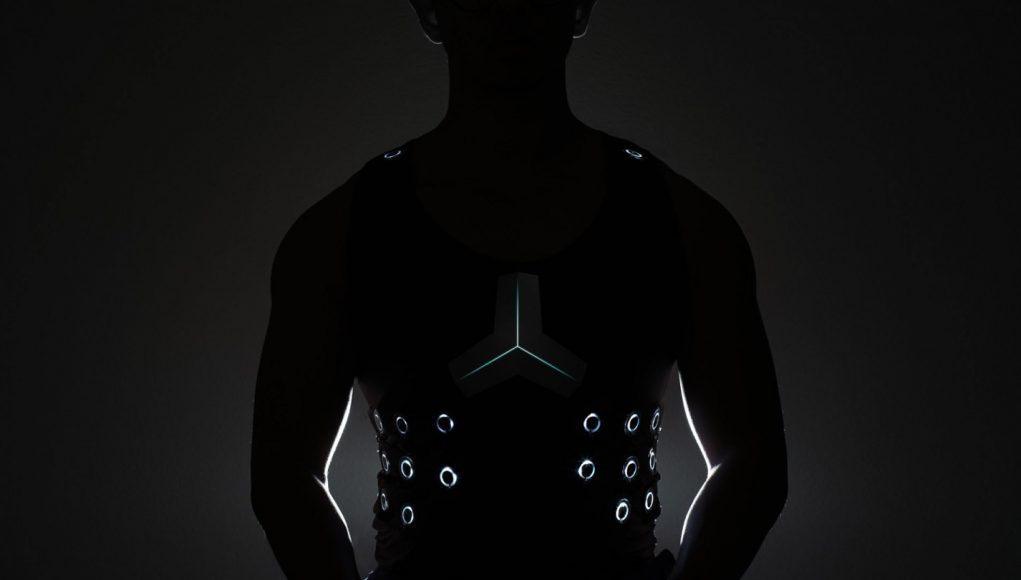 Back in 2015, Neuroscientist David Eagleman gave a TED talk about the potential to expand and create new senses. He showed off a haptic vest prototype that could translate audio input into an array of 32 vibrating motors that could be fed directly into your body. The signals would reach the brain and create a neural input that is indistinguishable from what the cochlea would produce, meaning that it’s possible to turn the torso into an ear. The principle of sensory substitution shows that the brain doesn’t care where the data comes from as long as it’s structured in the right format and correlated to feedback within the environment.
Back in 2015, Neuroscientist David Eagleman gave a TED talk about the potential to expand and create new senses. He showed off a haptic vest prototype that could translate audio input into an array of 32 vibrating motors that could be fed directly into your body. The signals would reach the brain and create a neural input that is indistinguishable from what the cochlea would produce, meaning that it’s possible to turn the torso into an ear. The principle of sensory substitution shows that the brain doesn’t care where the data comes from as long as it’s structured in the right format and correlated to feedback within the environment.
LISTEN TO THE VOICES OF VR PODCAST
I had a chance to catch up with Eagleman at the Experiential Technology Conference to talk about Neosensory’s VEST (Versatile Extra-Sensory Transducer), the hard problem of consciousness and how reality is constructed in the mind, expanding and creating new senses, invasive neural interfaces to the brain from Kernel, the philosophical implications of simulation theory, and his metaphors for how he understands the relationship between the mind and the body.
Eagleman co-founded a company called Neosensory that is creating this vibratory VEST, and they’re reaching out to developers to see what kind of applications this could have. He’s particularly curious about whether it’s possible for humans to create entirely new senses by feeding data streams into the body about imperceptible environmental data, or perhaps even abstracted data, like information from the stock market.
Eagleman says that the body is not great at handling redundant data, and so people who are deaf learn to use the VEST a lot faster than someone who can already hear. Learning to understand data from the VEST completely happens on an unconscious level, which they can objectively verify happens by seeing consistent improvements through many repetitions. Eagleman hypothesizes that it is possible to create new senses, and that the expansion of our biological capabilities with technology will expand the range of human sensory experience.
There’s a number of philosophical questions about the nature of consciousness, the philosophy of mind, as well as ethical questions around the extend that this should be used. Just because we can create new senses, should we? What are the emotional and mental health tradeoffs of feeding mentally abstracted data directly into our bodies? There’s also a lot of potential benefits like could this be used to feed emotional and biometric data from other people so that we can cultivate a deeper sense of empathy and connection with other consenting adults.
Sensory replacement and sensory addition is one of the most profound implications of virtual reality technologies, and Eagleman makes the point that the extent of our experiential reality is constrained by our biological limitations. By using this type of technology from Neosensory to expand our range of sensory experiences, then it’s changing and evolving what the dynamic range of the human experience.
Here’s Eagleman’s TED talk from March 2015 talking about the potential to create new senses:
Support Voices of VR
- Subscribe on iTunes
- Donate to the Voices of VR Podcast Patreon
Music: Fatality & Summer Trip







